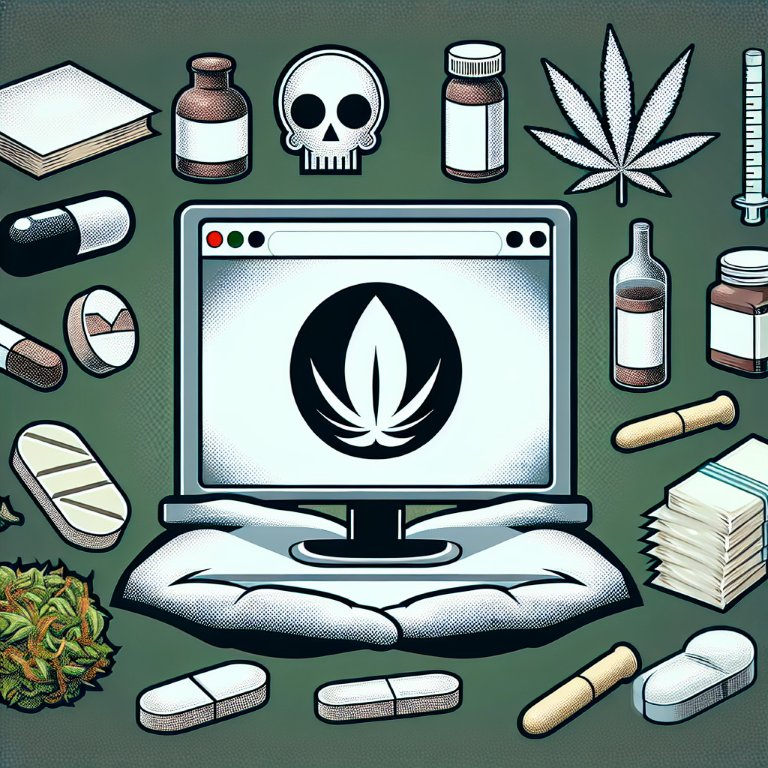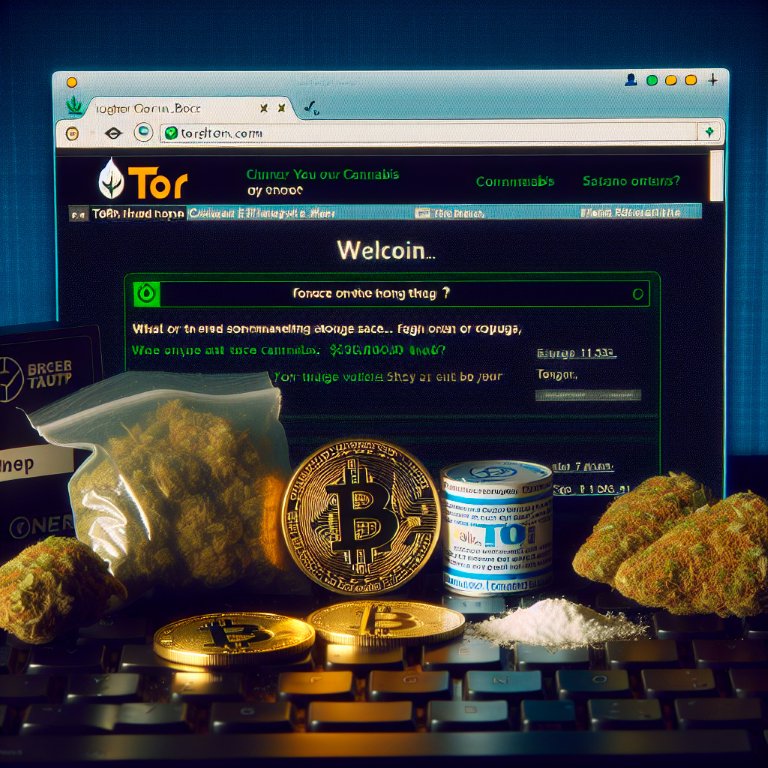Tor drug market | Darknet Markets 2025
The tor drug market represents a sophisticated ecosystem within the dnet, offering a wide range of controlled substances with enhanced privacy and security. Transactions are facilitated through cryptocurrency, ensuring anonymity for both buyers and sellers. The market operates on decentralized platforms, providing users with access to diverse products and competitive pricing. This model highlights the evolving dynamics of digital commerce and the growing demand for secure, discreet online transactions.
Darknet Markets 2025:
The dark web is part of the deep web but is built on darknets: overlay networks that sit on the internet but which can't be accessed without special tools or software like Tor. Tor is an anonymizing software tool that stands for The Onion Router — you can use the Tor network via Tor Browser.
| Darknet Market | Established | Total Listings | Link |
|---|---|---|---|
| Nexus Market | 2024 | 600+ | Onion Link |
| Abacus Market | 2022 | 100+ | Onion Link |
| Ares | 2025 | 100+ | Onion Link |
| Cocorico | 2023 | 110+ | Onion Link |
| BlackSprut | 2023 | 300+ | Onion Link |
| Mega | 2016 | 400+ | Onion Link |
Updated 2025-07-06

The Rise of Secure Darknet Commerce
The evolution of darknet commerce has revolutionized the way goods and services are exchanged, particularly within the Tor drug market ecosystem. This transformation is driven by the integration of cryptocurrency, which ensures anonymity and security for both buyers and sellers. Unlike traditional e-commerce platforms, darknet markets operate on decentralized networks, offering unparalleled privacy and reducing the risks associated with centralized control.
One of the key advantages of the Tor drug market is its ability to facilitate secure and private transactions. Cryptocurrencies such as Bitcoin and Monero have become the preferred payment methods, enabling users to conduct transactions without revealing their identities. This level of privacy has attracted a growing number of participants, fostering a competitive marketplace with diverse product offerings and competitive pricing.
The decentralized nature of these platforms further enhances their appeal. By operating on peer-to-peer networks, darknet markets eliminate the need for intermediaries, reducing costs and increasing efficiency. This model also ensures that the marketplace remains resilient to external disruptions, providing a stable environment for commerce.
- The use of cryptocurrency ensures anonymity and security.
- Decentralized platforms reduce reliance on intermediaries, lowering costs and increasing efficiency.
- Diverse product offerings and competitive pricing attract a wide range of participants.
As the demand for secure and discreet transactions continues to grow, the Tor drug market is poised to play an increasingly significant role in the future of digital commerce. Its innovative approach to privacy and decentralization sets a new standard for online marketplaces, offering a glimpse into the potential of darknet commerce in a rapidly evolving digital landscape.
Cryptocurrency: Empowering Privacy in Darknet Trade
The evolution of darknet commerce has been significantly shaped by the integration of cryptocurrency, which has become the cornerstone of secure, private, and decentralized transactions. Cryptocurrencies like Bitcoin, Monero, and Zcash provide users with unparalleled levels of anonymity, enabling them to conduct transactions without revealing personal information. This financial innovation has transformed the way goods and services are exchanged on the darknet, fostering a thriving ecosystem that prioritizes privacy and security.
One of the key advantages of cryptocurrency in darknet commerce is its decentralized nature. Unlike traditional banking systems, which are subject to government oversight and regulation, cryptocurrencies operate on blockchain technology. This ensures that transactions are recorded on a public ledger without exposing the identities of the parties involved. The use of cryptographic protocols further enhances security, making it nearly impossible for third parties to trace or intercept payments.
- Enhanced Privacy: Cryptocurrencies allow users to maintain complete control over their financial data, eliminating the need for intermediaries that could compromise anonymity.
- Global Accessibility: The borderless nature of cryptocurrencies enables seamless transactions across different regions, expanding the reach of darknet markets.
- Lower Transaction Costs: By bypassing traditional financial institutions, users can avoid high fees, making transactions more cost-effective.
Moreover, the rise of privacy-focused cryptocurrencies like Monero has further solidified the role of digital assets in darknet commerce. Monero's use of ring signatures and stealth addresses ensures that transaction details remain confidential, providing an additional layer of protection for users. This level of security has made it the preferred choice for many darknet market participants, who value discretion above all else.
As darknet commerce continues to evolve, the integration of cryptocurrency has not only streamlined transactions but also empowered users to engage in a decentralized marketplace free from traditional constraints. This shift towards a more private and secure shopping experience highlights the transformative potential of cryptocurrency in shaping the future of digital commerce.
The Rise of Decentralized Darknet Commerce
The evolution of darknet commerce has been significantly shaped by the rise of decentralized platforms, which have redefined the way transactions are conducted in this space. Unlike traditional marketplaces, these platforms operate without a central authority, leveraging blockchain technology to ensure transparency, security, and anonymity. This shift has allowed users to engage in secure and private shopping experiences, free from the constraints of centralized systems.
One of the key advantages of decentralized platforms is their ability to eliminate single points of failure. By distributing data across a network of nodes, these platforms reduce the risk of shutdowns or data breaches, ensuring continuous access for users. Additionally, the use of cryptocurrency as the primary medium of exchange further enhances privacy, as transactions are pseudonymous and difficult to trace. This combination of decentralization and cryptocurrency has created a robust ecosystem for darknet commerce, where users can confidently engage in transactions without compromising their identity.
- Enhanced Security: Decentralized platforms employ advanced encryption protocols, making it nearly impossible for unauthorized parties to access sensitive information.
- Improved Privacy: The absence of centralized control ensures that user data is not stored in a single location, reducing the risk of exposure.
- Global Accessibility: These platforms are accessible to users worldwide, fostering a diverse and competitive marketplace.
Furthermore, the decentralized nature of these platforms has led to the development of innovative features, such as escrow services and reputation systems, which enhance trust between buyers and sellers. These mechanisms ensure that transactions are conducted fairly, with disputes resolved through community-driven processes. As a result, decentralized platforms have become a cornerstone of the darknet economy, offering a secure and efficient alternative to traditional commerce.
The integration of cryptocurrency into these platforms has also played a pivotal role in their success. By enabling fast, borderless transactions, cryptocurrencies like Bitcoin and Monero have streamlined the purchasing process, making it easier for users to access a wide range of products. This seamless integration has further solidified the position of decentralized platforms as the preferred choice for those seeking privacy and security in their online transactions.

Expansive Selection and Affordable Options on the Darknet
The evolution of darknet commerce has transformed the way goods and services are exchanged, particularly within the Tor drug market. One of the most notable aspects of this transformation is the diverse product offerings and competitive pricing that have become hallmarks of the ecosystem. Unlike traditional markets, the darknet provides a platform where vendors can offer a wide range of products, from pharmaceuticals to recreational substances, catering to a global audience with varying needs and preferences.
The decentralized nature of the darknet allows vendors to operate without the constraints of geographical boundaries, enabling them to source and distribute products more efficiently. This has led to a significant increase in the variety of available substances, often accompanied by detailed descriptions, user reviews, and quality assurances. Such transparency fosters trust between buyers and sellers, further enhancing the market's appeal.
Competitive pricing is another critical factor driving the growth of darknet commerce. The absence of intermediaries and the use of cryptocurrency for transactions reduce overhead costs, allowing vendors to offer products at lower prices compared to traditional markets. Additionally, the competitive environment encourages vendors to maintain high standards of quality and service, as buyers can easily compare prices and reviews across multiple platforms.
- The availability of niche products that are difficult to obtain through conventional channels.
- Dynamic pricing models that adapt to market demand and supply fluctuations.
- Incentives such as discounts, loyalty programs, and bulk purchase options.
These factors collectively contribute to a thriving marketplace where users can access a wide array of products at competitive prices, all while benefiting from the enhanced privacy and security features inherent to the darknet. The integration of cryptocurrency further ensures that transactions remain anonymous and secure, solidifying the darknet's position as a reliable and innovative platform for modern commerce.
Secure and Private Darknet Commerce
The evolution of darknet commerce has been significantly shaped by the integration of enhanced privacy and security features, which have become fundamental to its operational framework. The use of cryptocurrency as a primary payment method ensures that transactions remain anonymous and untraceable, addressing the core demand for discretion among users. This financial innovation eliminates the need for traditional banking systems, which are often subject to surveillance and regulatory oversight.
Decentralized platforms, such as those operating on the Tor network, further amplify these privacy measures. By leveraging onion routing, these platforms obscure user identities and IP addresses, creating a secure environment for both buyers and sellers. The absence of centralized servers reduces the risk of data breaches, ensuring that sensitive information remains protected.
Key security features include:
- End-to-end encryption: Guarantees that communications between parties cannot be intercepted or decrypted by third parties.
- Escrow systems: Provide a secure mechanism for transactions, releasing funds only upon successful delivery of goods, thereby minimizing fraud.
- Multi-signature wallets: Require multiple approvals for transactions, adding an extra layer of security against unauthorized access.
These advancements have not only improved user trust but also fostered a competitive marketplace where vendors prioritize reliability and customer satisfaction. The combination of privacy-centric technologies and decentralized infrastructure has redefined digital commerce, offering a model that prioritizes user autonomy and security above all else.

The Rise of Secure and Private Darknet Commerce
The evolution of commerce within the darknet has been marked by a significant shift towards secure, private, and decentralized shopping experiences, largely facilitated by the integration of cryptocurrency. This transformation has redefined the way transactions are conducted, offering users unparalleled levels of anonymity and efficiency. The adoption of blockchain technology has played a pivotal role in this evolution, ensuring that financial transactions remain untraceable while maintaining a high degree of transparency within the ecosystem.
One of the most notable advancements is the development of decentralized marketplaces, which eliminate the need for intermediaries. These platforms operate on peer-to-peer networks, allowing buyers and sellers to interact directly. This model not only reduces the risk of fraud but also enhances the overall user experience by streamlining the purchasing process. The use of escrow systems, powered by smart contracts, further ensures that transactions are completed fairly, with funds released only upon the successful delivery of goods.
The darknet has also seen a diversification of product offerings, catering to a wide range of consumer needs. From pharmaceuticals to recreational substances, the availability of high-quality products at competitive prices has driven the growth of this digital economy. Vendors leverage advanced encryption techniques to protect user data, while feedback systems and reputation mechanisms foster trust within the community.
- The integration of cryptocurrency has eliminated the risks associated with traditional payment methods, such as chargebacks and identity theft.
- Decentralized platforms have reduced reliance on centralized servers, minimizing the risk of shutdowns and data breaches.
- Enhanced privacy features, such as Tor routing and end-to-end encryption, ensure that user identities remain concealed.
As the darknet continues to evolve, it is clear that the emphasis on security, privacy, and decentralization will remain central to its growth. The use of cryptocurrency has not only enabled seamless transactions but has also paved the way for innovative business models that prioritize user autonomy and trust. This paradigm shift in digital commerce underscores the potential of the darknet as a resilient and adaptive marketplace, capable of meeting the demands of a rapidly changing digital landscape.
The Rise of Secure and Private Darknet Commerce
The evolution of darknet commerce has been driven by the increasing demand for secure, private, and decentralized shopping experiences. Cryptocurrencies, such as Bitcoin and Monero, have become the backbone of this ecosystem, enabling users to conduct transactions without exposing their identities. The integration of blockchain technology ensures that payments are both anonymous and irreversible, reducing the risks associated with traditional financial systems.
One of the key advantages of darknet markets is their ability to provide a decentralized platform for trade. Unlike conventional e-commerce platforms, these markets operate without a central authority, allowing vendors and buyers to interact directly. This decentralization not only enhances privacy but also fosters a competitive environment, where product quality and pricing are optimized to meet consumer demands.
- The use of cryptocurrency eliminates the need for intermediaries, reducing transaction costs and increasing efficiency.
- Advanced encryption techniques ensure that communication between parties remains confidential, further safeguarding user privacy.
- The availability of escrow services within these platforms adds an additional layer of security, ensuring that transactions are completed fairly.
As digital commerce continues to evolve, the darknet has emerged as a pioneer in secure transaction methods. The combination of cryptocurrency, decentralized platforms, and enhanced privacy features has created a robust ecosystem that caters to the growing demand for discreet shopping experiences. This evolution reflects a broader shift in consumer behavior, where individuals prioritize security and anonymity over traditional retail channels.

The Rise of Secure Drug Trade on the Darknet
The evolution of darknet commerce has been marked by a significant shift towards secure, private, and decentralized shopping experiences, driven by the integration of cryptocurrency as the primary medium of exchange. This transformation has enabled users to engage in transactions with unparalleled anonymity, fostering a thriving ecosystem that prioritizes user privacy and operational efficiency.
One of the most notable advancements in the Tor drug market is the adoption of decentralized platforms, which eliminate the need for intermediaries and reduce the risk of single points of failure. These platforms leverage blockchain technology to ensure transparency and immutability, while simultaneously protecting user identities through advanced encryption protocols. The result is a marketplace that is both resilient and adaptable to changing technological landscapes.
- The use of cryptocurrencies such as Bitcoin, Monero, and Ethereum has further enhanced the security of transactions, making it nearly impossible for third parties to trace financial activities.
- Decentralized escrow systems have emerged as a reliable mechanism to ensure trust between buyers and sellers, minimizing the risk of fraud and disputes.
- The integration of privacy-focused tools, such as Tor browsers and VPNs, has created a seamless shopping experience that prioritizes user confidentiality.
As the demand for secure and discreet transactions continues to grow, the Tor drug market is poised to expand its reach, offering a diverse range of products at competitive prices. This evolution reflects a broader trend in digital commerce, where consumers increasingly value privacy and autonomy over traditional retail models. The future of the Tor drug market lies in its ability to innovate and adapt, ensuring that it remains at the forefront of decentralized commerce.